Related Research Articles
The ecological footprint measures human demand on natural capital, i.e. the quantity of nature it takes to support people and their economies. It tracks human demand on nature through an ecological accounting system. The accounts contrast the biologically productive area people use to satisfy their consumption to the biologically productive area available within a region, nation, or the world (biocapacity). Biocapacity is the productive area that can regenerate what people demand from nature. Therefore, the metric is a measure of human impact on the environment. As Ecological Footprint accounts measure to what extent human activities operate within the means of our planet, they are a central metric for sustainability.
Environmental design is the process of addressing surrounding environmental parameters when devising plans, programs, policies, buildings, or products. It seeks to create spaces that will enhance the natural, social, cultural and physical environment of particular areas. Classical prudent design may have always considered environmental factors; however, the environmental movement beginning in the 1940s has made the concept more explicit.
John Seymour was a British author and pioneer in the self-sufficiency movement. In 1976, he wrote The Complete Book of Self-Sufficiency.

Dongtan was a planned development described as an eco-city on the island of Chongming in Shanghai, China that was never built. Design began in 2005, and by 2010 the development had stalled. Adjacent to booming Shanghai, designers claimed Dongtan would be the world's first truly sustainable new urban development. Dongtan was presented at the United Nations World Urban Forum by China as an example of a purpose-built eco-city.
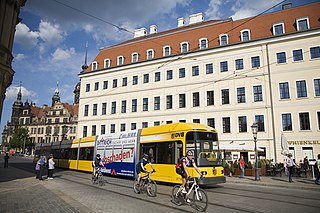
A sustainable city, eco-city, or green city is a city designed with consideration for the social, economic, and environmental impact, as well as a resilient habitat for existing populations. This is done in a way that does not compromise the ability of future generations to experience the same. The UN Sustainable Development Goal 11 defines sustainable cities as those that are dedicated to achieving green sustainability, social sustainability and economic sustainability. In accordance with the UN Sustainable Development Goal 11, a sustainable city is defined as one that is dedicated to achieving green, social, and economic sustainability. They are committed to this objective by facilitating opportunities for all through a design that prioritizes inclusivity as well as maintaining a sustainable economic growth. Furthermore, the objective is to minimize the inputs of energy, water, and food, and to drastically reduce waste, as well as the outputs of heat, air pollution. Richard Register, a visual artist, first coined the term ecocity in his 1987 book Ecocity Berkeley: Building Cities for a Healthy Future, where he offers innovative city planning solutions that would work anywhere. Other leading figures who envisioned sustainable cities are architect Paul F Downton, who later founded the company Ecopolis Pty Ltd, as well as authors Timothy Beatley and Steffen Lehmann, who have written extensively on the subject. The field of industrial ecology is sometimes used in planning these cities.
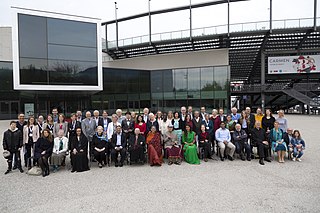
The World Future Council (WFC) is a German non-profit foundation with its headquarters in Hamburg. It works to pass on a healthy and sustainable planet with just and peaceful societies to future generations.
Diana Athill was a British literary editor, novelist and memoirist who worked with some of the greatest writers of the 20th century at the London-based publishing company Andre Deutsch Ltd.

Felix Dodds, born Michael Nicholas Dodds, is a British author, futurist, and activist.
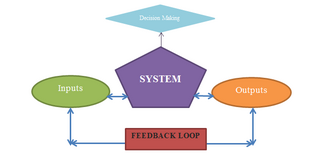
Regenerative design is about designing systems and solutions that work with or mimic the ways that natural ecosystems return energy from less usable forms to more usable forms. Regenerative design uses systems thinking and other approaches to create resilient and equitable systems that integrate the needs of society and the well-being of nature. Regenerative design is an active topic of discussion in engineering, economics, medicine, landscape design, food systems, and urban design & community development generally.
Urban metabolism (UM) is a model to facilitate the description and analysis of the flows of the materials and energy within cities, such as undertaken in a material flow analysis of a city. It provides researchers with a metaphorical framework to study the interactions of natural and human systems in specific regions. From the beginning, researchers have tweaked and altered the parameters of the urban metabolism model. C. Kennedy and fellow researchers have produced a clear definition in the 2007 paper The Changing Metabolism of Cities claiming that urban metabolism is "the sum total of the technical and socio-economic process that occur in cities, resulting in growth, production of energy and elimination of waste." With the growing concern of climate change and atmospheric degradation, the use of the urban metabolism model has become a key element in determining and maintaining levels of sustainability and health in cities around the world. Urban metabolism provides a unified or holistic viewpoint to encompass all of the activities of a city in a single model.
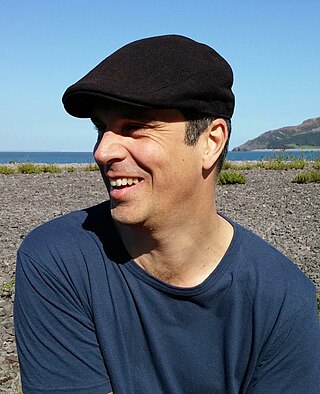
Miguel Mendonça is an Anglo-Azorean writer and musician based in Bristol, England.
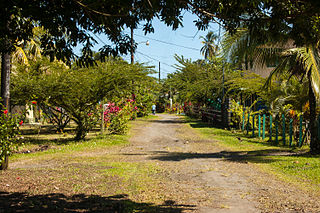
Green urbanism has been defined as the practice of creating communities beneficial to humans and the environment. According to Timothy Beatley, it is an attempt to shape more sustainable places, communities and lifestyles, and consume less of the world's resources. Urban areas are able to lay the groundwork of how environmentally integrated and sustainable city planning can both provide and improve environmental benefits on the local, national, and international levels. Green urbanism is interdisciplinary, combining the collaboration of landscape architects, engineers, urban planners, ecologists, transport planners, physicists, psychologists, sociologists, economists and other specialists in addition to architects and urban designers.

Hakim Abdullah Jamal was an American activist and writer. He was an associate of Michael X and wrote From the Dead Level, a memoir of his life and memories of Malcolm X. During his life, Jamal was romantically involved with several high-profile women, notably Jean Seberg, Diana Athill, and Gale Benson.
A regenerative city is an urban development built on an environmentally enhancing, restorative relationship with the natural systems from which the city draws resources for its sustenance. A regenerative city maintains a symbiotic, mutually beneficial relationship with its surrounding hinterland not only by minimizing its environmental impact but by actively improving and regenerating the productive capacity of the ecosystems from which it depends.
'Net positive', from Positive Development (PD) theory, is a paradigm in sustainable development and design. PD theory was first detailed in Positive Development (2008), and detailed in Net-Positive Design (2020). A net positive system/structure would 'give back to nature and society more than it takes' over its life cycle. In contrast, conventional sustainable design and development, in the real-world context of excess population growth, biodiversity loss, cumulative pollution, wealth disparities and social inequities closes off future options. To reverse the overshoot of planetary boundaries, a 'positive Development' would, among other sustainability criteria, increase nature beyond pre-urban or pre-industrial conditions.

Planet Earth II is a 2016 British nature documentary series co-produced by the BBC Natural History Unit, BBC Studios, BBC America, ZDF, France Télévisions and Tencent and distributed by BBC Worldwide. It functions as a sequel to Planet Earth, which was broadcast in 2006. The series is presented and narrated by Sir David Attenborough with the main theme music composed by Hans Zimmer.
Vera Mulyani is an Indonesian-born, French-raised architect, filmmaker, children's author, as well as Founder and CEO of Mars City Design, a collaborative platform created to explore the concept of livability and sustainability on Mars as well as Earth. She has been called a Marschitect.

Solarpunk is a literary and artistic movement, close to the hopepunk movement, that envisions and works toward actualizing a sustainable future interconnected with nature and community. The "solar" represents solar energy as a renewable energy source and an optimistic vision of the future that rejects climate doomerism, while the "punk" refers to do it yourself and the countercultural, post-capitalist, and sometimes decolonial aspects of creating such a future.

The Green Planet is a 2022 British nature documentary series on plants and their relationship with animals, humans and the environment. It was a co-commission from the BBC and PBS and produced by the BBC Studios Natural History Unit in co-production with Open University, CCTV-9, Bilibili, ZDF, France Télévisions and NHK. It was narrated and presented by David Attenborough.
References
- ↑ The Environment Encyclopedia and Directory. Europa Publications Limited, 2001, S. 488.
- ↑ Diana Athill (2012). Make Believe: A True Story. London: Granta. p. 118.
Patrick French, in his introduction to Athill's book, attributes to Girardet the "perfectly Nabokovian name" of 'Herbert G. Herbert' - an error that has never been corrected in any subsequent edition.
- ↑ BENSON, Gale. "Autograph postcard sent from Gale Benson in Port of Spain, Trinidad to Oz magazine editor Jim Anderson in London". BeatBooks. Retrieved 18 October 2024.
postmarked November 8, 1971, only a month after her arrival with Hakim Jamal from Guyana and less than two months before she was murdered... The company she mentions, the non-existent First Caribbean Publishing Company, was Hakim's ruse to hustle funding from the German publishing heir Herbert Girardet, his counterpart to Michael X's former benefactor, Nigel Samuel.
- ↑ Athill, Make Believe, pp. 124–27.
- ↑ HASSETT, GEORGE (19 February 2020). "THE LIFE AND DEATH OF HAKIM JAMAL". BINJ. Retrieved 18 October 2024.
- ↑ Herbert Girardet (1990). "The metabolism of cities". In David Cadman; Geoffrey Payne (eds.). The Living City. Routledge. p. 170. ISBN 9780429197307 . Retrieved 19 October 2024– via uat.taylorfrancis.com.
- ↑ "About our work". World Future Council. Retrieved 18 October 2024.
- 1 2 "Girardet, Herbert". Club of Rome. Retrieved 18 October 2024.
- 1 2 Bals, Helena (20 April 2023). "Herbert Girardet". World Future Council. Retrieved 18 October 2024.
- ↑ "RIBA Awards - Royal Institute of British Architects" (PDF). www.architecture.com. Retrieved 18 October 2024.